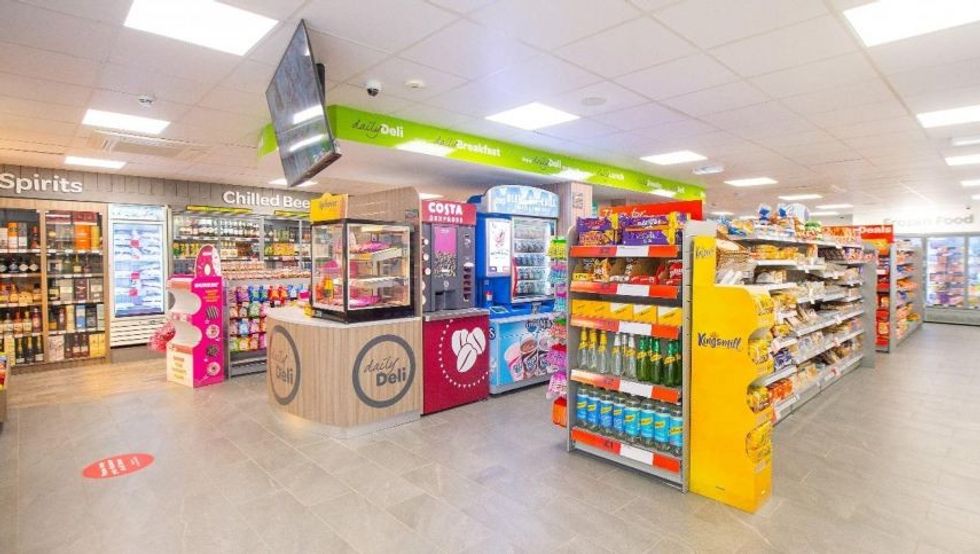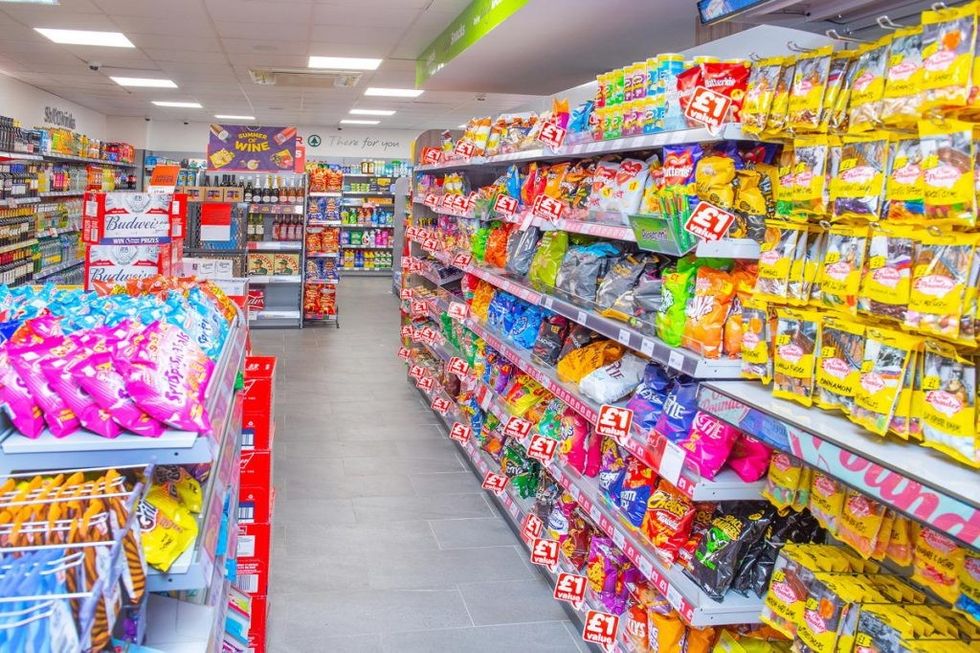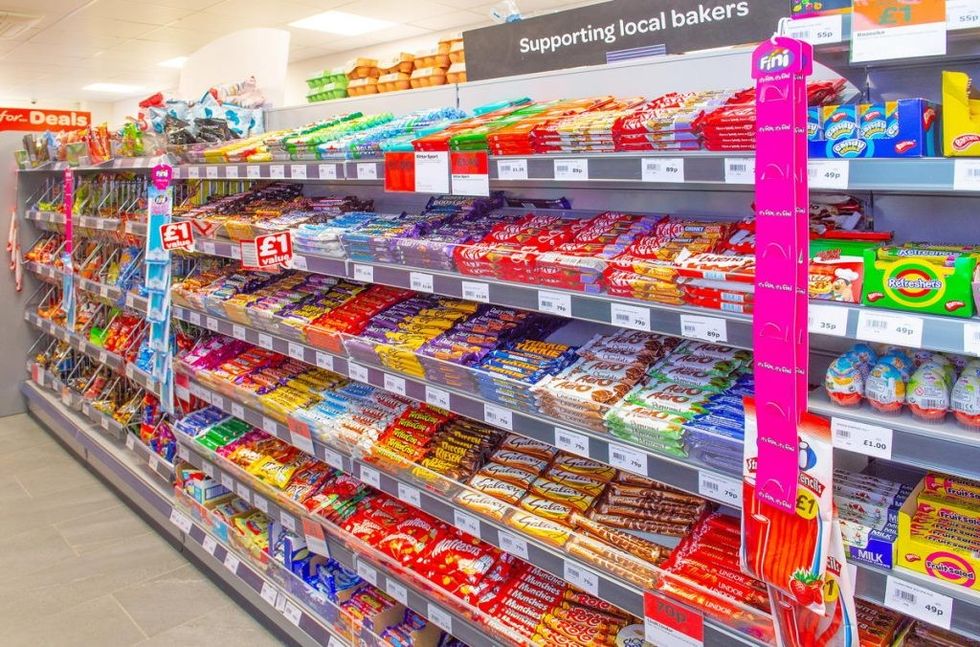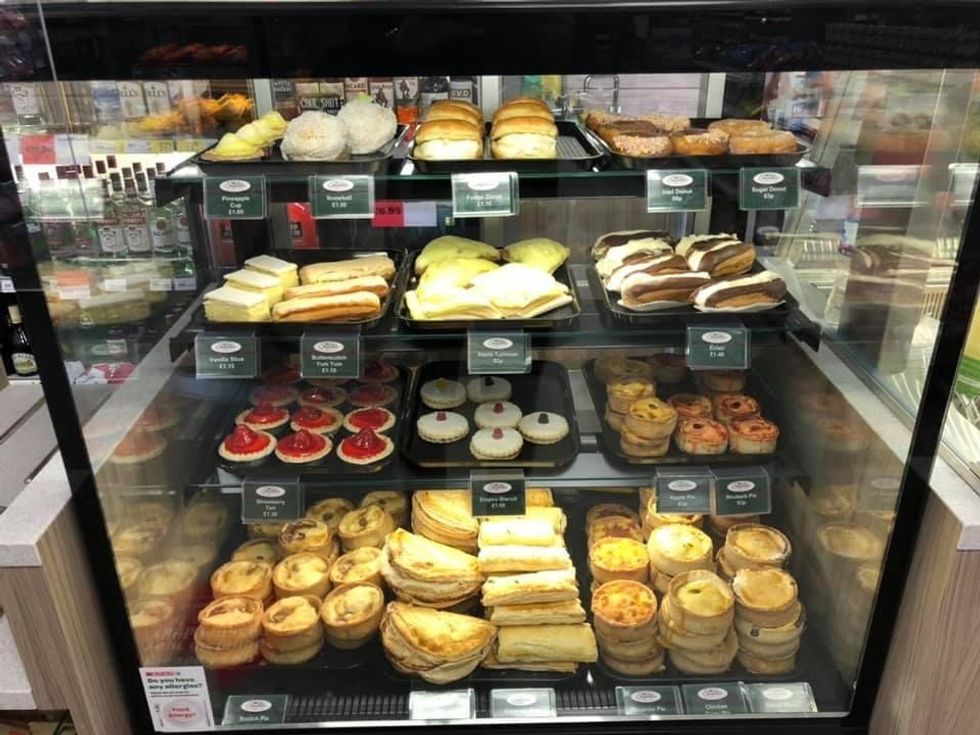For the well-known Scotland-based Cheema retailer family, the 31st Asian Trader Awards held earlier this year was truly special. Anand Cheema, who opened his store in August 2020, won the Impulse Retailer of the Year prize, following in his father’s footsteps. One and a half decades ago, in 2006, Pete Cheema, chief executive of the Scottish Grocers’ Federation (SGF), was Asian Trader of the Year.
Anand says the award – or what he considers a reward –was received well by their customers, adding that it pays “homage” to the community as well. “We wouldn't be where we are without them,” he says. The honour also got them good press in the local newspapers, taking the new store to more members of the community. “It gave us a bit of an uplift in terms of sales, in terms of recognition within the community, reaching members who didn't know that we existed,” he explains.
One should note that Anand’s Spar store on Maggie Wood’s Loan, Falkirk, which is on the site of one of Pete’s early Scottish enterprises, has never been short of media attention. While it is obvious that he will generate some curiosity on account of his father being the boss of SGF, it was soon clear that Anand has one or two tricks of his own up his sleeve, to sustain that interest and create new revenue streams.
Pete himself told us recently about his son’s innovations: “He’s come up with some really great ideas like selling cocktails. There’s not many stores doing that kind of stuff, you know, just basically figuring out that this is what people are missing out on, so can we do it?”
Anand has made this store a whisky hot-spot for connoisseurs, even selling several vintage bottles for £3,500. He made headlines when he was one of the first retailers to stock newly-released vintage Rosebank Lowland Single Malt Scotch Whisky. And, he is really evolving the offer with cocktails and beer kegs.

“There's a lot of emphasis on different categories in the store, but we are becoming known for alcohol sales,” he agrees. “So, we've got the whisky where we sold numerous bottles at £1600, also at £2500 and one bottle for £3500. So it's scaling up every time.”
“We like to keep it mixed up. We've brought in cocktails, from various suppliers, just to keep it fresh, especially with the hot weather coming into place. And also we've been doing really well with beer kegs, with the current pandemic, as a lot of people have been investing in man caves, you know, beer keg machines for their homes. We've done a lot of big business on all types and all sizes of kegs from two litres, right up to eight litres,” he explains, adding that he doesn’t see this trend falling off too soon.
Anand’s enterprising nature is also evident in his decision to make food to go the central attraction of his store, despite the Covid-19 pandemic and lockdowns suddenly making the booming category uncertain. He has, in fact, solid research to back him when he says food to go is the future of convenience.
“We knew prior to Covid there was a big emphasis on food to go in the convenience channel,” he says. “We conducted a geographical information survey before we opened the store. From our survey, we realised that we have two schools nearby within walking distance, a community hospital and 40 per cent of our population is office workers.”
“So we knew if we were able to build up the food to go throughout the first two years, until the office workers go back, and really implement in the consumers’ mind that we do provide a good food to go service, when they go back to office, they know they can come to us,” he adds.
Anand, aged just 24, is in it for the long haul. He studied accounting and finance at university, but he had always set his eyes on retailing. “It's important to get some education and degree behind me, you know, to have that bit of learning a business sense, to bring into the business if I was to come back into business,” he says.
Whilst at university, and from his internships and work experience, he realised that it really wasn't a field for him. So after qualifying, he went straight into retail, working for CJ Lang & Son, Scotland's Spar wholesaler, looking after 30 to 40 stores in the west of Scotland for them.
“From there I quickly gained a lot of experience and different ideas of what I can do in my own store and implement aspects of what I see on the market, coupled with what I've learned from the family business,” he says, adding that what he is trying nowis to combine all that in “a certain way to get a winning formula.”
And, it surely works for him, with his alcohol sales a case in point. The focus and innovation is a result of the research they have done and the wisdom from his father’s experience in running a store in the area.
“We did our research and we had experience in the area before as well. My dad previously ran the store and sold a lot of whiskey, not high end, but he sold a lot of whiskey in the area. In his previous stores as well. We always knew that there was scope for this,” he says, adding that it’s the price point and the capital outlays to begin with that mostly deter other retailers to cashing inon this opportunity.
Anand was able to get a hold of seven bottles – out of the just 4350 bottles, priced at £1600 per bottle,made available worldwide –when Rosebank Distillery, which is located 500 yards down the road from his store and owned by Ian Macleod Distillers, released the limited edition30-year-old Rosebank Lowland Single Malt Scotch Whisky. He had secured the bottles even before he opened his store.
“We knew that would really create a good hype around the store before opening and would allow us to kick on with a reputation because you have a point of difference to another store or a supermarket,” he says.
Talking about competition, Anand says they don't have a lot of heavy competition immediate to them, they’ve got several small stores around them and a Tesco Express not so far away, but he believes that you've always got competition on your doorstep now as “everyone drives these days, and everyone delivers these days,” and he is determined to tackle the challenge of home delivery.
“Even though we might have missed the boat on the real spike at the start of Covid I still think that home delivery is the future, as well as fresh and food to go. So it is key that we implement this into our business ASAP,” he notes.
He says his store has a mix of demographics, with a lot of older customers as well, who were relying on people purchasing products for them on their behalf. In April, he secured permission from the local council to deliver alcohol along with groceries through the Snappy Shopper app.
“We [needed to] get a head start ahead of our competitors and instill that mindset into our customers that we provide that service and we provide it well, so that we're ready for anything that comes up in the future,” he adds.
He would be taking on new staff to help make the deliveries and he assured councillors that they would be fully trained, which in fact has been something he is very particular about right from the start. He believes that while staff is key, staff training is crucial to the store.
“Happy staff equals a happy shop, which equals a profitable one,” he says. “Staff are the first thing that the customers see, they're the face of the business. It's so important that you invest your time and money into them. Because ultimately, it's an investment, and you'll get a return out of that.”
And, what does he expect from them? “They've got to be professional; they've got to know theirstuff. It can't just be me that knows everything about the whiskey, the beer kegs, etc. It's got to be the staff who are up to speed. And then ultimately, standards need to be kept in terms of cleanliness, especially with the pandemic, and regarding regulatory training as well. Everything's got to be your standard. And that's how you build a reputation.”
It’s a pretty exhaustive check list, but he makes sure he does his part to a tee. All of his staff undertook Covid awareness, health and safety, food safety and mental health training online to ensure they are ready to meet customer needs and to instill confidence in the community.
Local is also very important for them. While there's a huge emphasis on going local across the UK, with the pandemic playing a big part for the turn, Anand says this is especially pronounced in Scotland. “We have a lot of local suppliers, from alcohol straight through to fresh. It gives a point of difference as well. I think it's a huge benefit. The customer knows what they're buying, essentially.”
Coming to the category which won him the prize, Anand says impulse is all about merchandising the store properly and effectively to drive sales, or in his words, “to capture the customers”.
“Ultimately, the store needs to be aesthetically pleasing to the consumer. It's about strategically placing products around the store where they're likely to pick up items, and impulse purchase.” So, the front of their store is more about on the go, quick and easy to pick up, eye catching and some good value for money products and the back half of the shop being more your traditional convenience offering of grocery, pet, 2ltrs and household.
The state of the art electronic video rails, displaying various advertising material, is an innovative idea that they came up with. “We thought if we were to implement this across the whole store, it would be overkill. So we strategically placed these where it would be attractive for the customer to come to that area of the store,” he says. “This also adds extra theatre to the store, increasing customer satisfaction. Customers came into store at first to have a look at them. We have seen sales especially increase in areas such as craft ales, beer, alcohol and hanging bags.”
They also look to display products in a more fresh and market-style way. For example, they display fruit and veg in wooden crates and SELs are written in a chalk-style format. They also moved fruit and veg to the front of the store, opposite the bakery goods, in order to really push fresh to the customers. Anand says this has increased sales in the category, in addition to complementing food-to-go sales.
Not only this,they display the rolls which they use for food to go behind the counter to show that they use fresh day-in, day-out and it also adds theatre to the area. “Everything we make in store is fresh. Even our sandwiches and baguettes are made in store and sold on the shop floor. These are made daily by our team of dedicated food-to-go staff,” Anand says. “This not only looks better than pre-packed but also tastes better. I'm glad to say, our customers agree and it’s also a lot healthier too.”
Anand often repeats how the research has helped him in making decisions, but the gist of his approach is to really find out what the area is like, what the demography is like and what is close to the store. Answers to these questions are what inform his focus areas of the store.
“We knew that three main focuses for our store would be alcohol because of the distillery; food to go because of the office workers and school; and also fresh because of the neighborhood community that we have,” he explains, and it definitely makes sense when he adds: “So if you stick to three things that you can really build a reputation on, I don't think you can go wrong. It's just about doing that well and doing it differently.”
He is well aware that, being the son of Pete Cheema, there's always going to be “prying eyes” on the store, but he takes it as an inspiration to not let the guard own. “Although my standards are high, it means I have to maintain those standards as well,” he says confidently. And, he has distilled three mantras from the vast experience of his parents to help him tackle the challenge: “Always work hard and always look to innovate; try and be the best that you can.”
And, if there’s one among these that he needs to choose to share with all retailers in the convenience channel, there’s no hesitation: “Never stand still. Always look to better your store and reinvest.”









